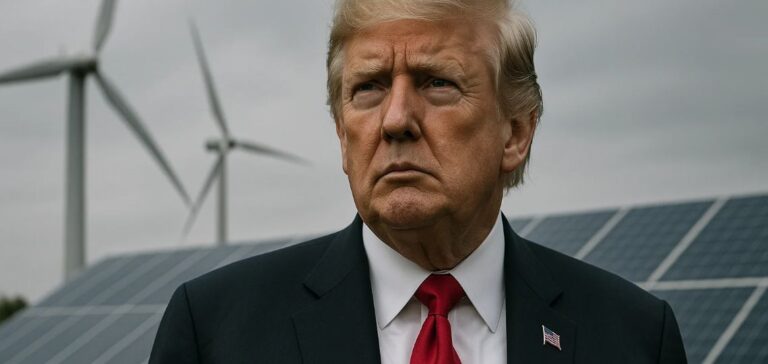For several months, the US renewable energy industry has faced uncertainty linked to radical shifts in trade and energy policies initiated by the Trump administration. Tariff measures imposed primarily against China, combined with regulatory uncertainties surrounding the Inflation Reduction Act (IRA) tax credits, have contributed to lowered growth forecasts for the sector in the United States. In response to these challenges, several major solar, wind, and battery storage companies have experienced significant drops in their market value. This phenomenon is particularly acute in the lithium-ion battery segment, heavily reliant on Chinese imports.
Impact of Tariffs on the Storage Sector
The recent increase in US tariffs on Chinese goods to 145%, compounded by specific levies on critical lithium-ion battery components, is deeply disrupting strategies for companies active in energy storage. Fluence Energy, a leading player in battery storage solutions, has seen its stock price decline by over 83% since the US presidential election of November 2024. According to Bank of America Securities, Fluence Energy remains particularly vulnerable to tariffs, directly affecting its profit margins and capacity to meet demand with its current supply chain. The company is now working to strengthen industrial partnerships within the United States to reduce its dependence on Chinese imports.
Slowdown in Solar and Wind Projects
Investment momentum in major solar and wind projects has dramatically slowed during the first quarter of 2025. The nonpartisan organization Environmental Entrepreneurs (E2) reports cancellations or postponements of twenty significant projects, totaling nearly eight billion dollars in investments. This figure represents triple the amount of investments canceled in the sector between 2022 and 2024. Among the most notable examples is the Empire Wind 1 project by Norwegian company Equinor, whose offshore construction near New York was halted by federal order, highlighting growing regulatory risks.
Persistent Uncertainty on Tax Credits
Beyond commercial aspects, uncertainty surrounding federal tax credits under the Inflation Reduction Act is deeply affecting the residential sector. The domestic solar market, already weakened by major regulatory changes in California, is now experiencing a pronounced slowdown. Companies such as Sunnova Energy International have seen their market capitalization decline by more than 97% since November 2024, clearly illustrating financial difficulties exacerbated by tax uncertainty and macroeconomic challenges. Financial analysts, notably at Jefferies, indicate that the immediate future of residential solar will largely depend on clarifications regarding the continuity of fiscal incentives.
Efforts to Adjust Supply Chains
Despite these disruptions, several American companies are adapting their strategies to stabilize their operations. Fluence Energy is relying on its industrial facilities in Arizona, South Carolina, and Utah for critical components, while awaiting increased lithium-ion battery cell production at AESC Group’s Tennessee plant. Meanwhile, the solar sector is seeing the emergence of new photovoltaic panel factories in Texas and Michigan, aiming to reduce reliance on imports. These initiatives could potentially mitigate negative impacts from trade policies, although their tangible effectiveness remains to be assessed in upcoming quarters.






















